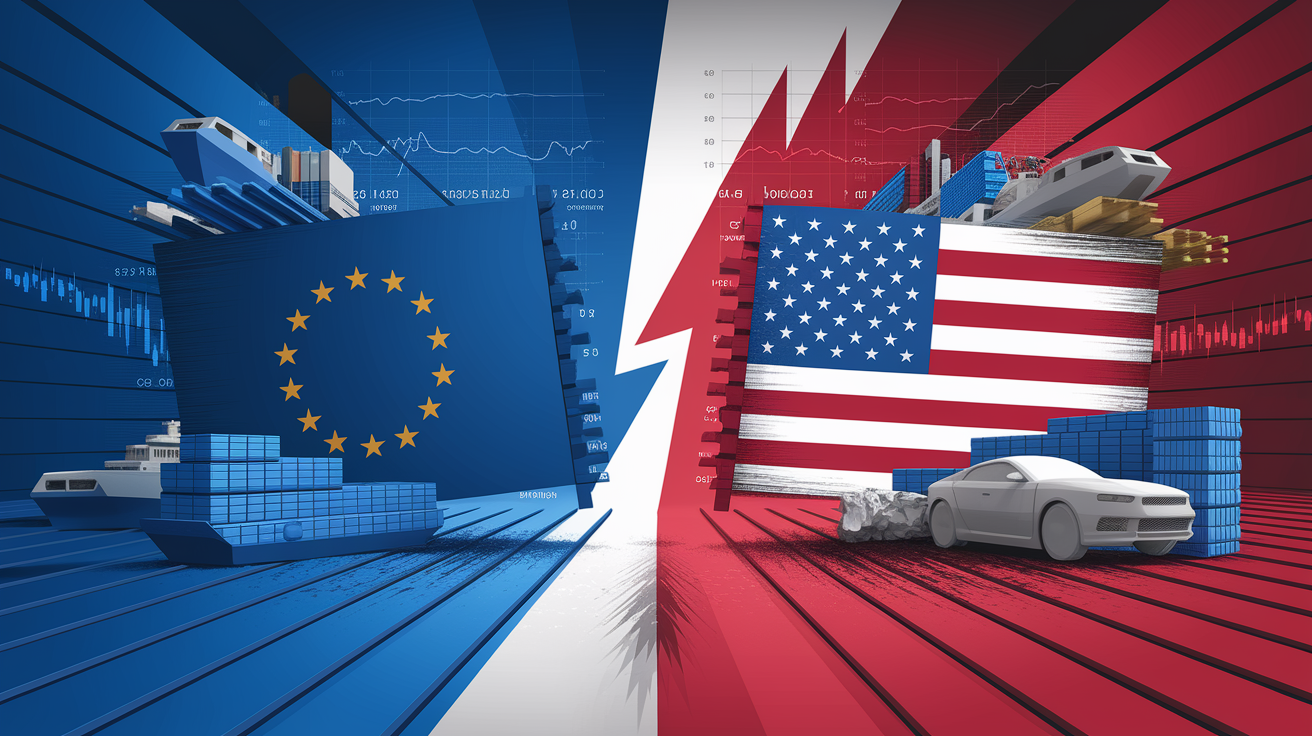The transatlantic trade relationship between the European Union and the United States faces another potential crisis as Washington announces new tariffs on European car imports. In response, the European Commission has signaled a firm and strategic countermeasure to safeguard its economic interests. With US tariffs on European steel, aluminum, and now automobiles, the possibility of a full-scale trade war looms. This blog post examines the potential consequences, the EU’s available options, and the broader economic implications.
US Tariffs and the EU’s Response
On March 27, the US government confirmed it would implement a 25% tariff on European car imports, effective April 2. These measures are an extension of existing tariffs on steel and aluminum, which were first imposed in 2018 during the Trump administration. The European Commission has expressed concerns over these actions and is now preparing a measured but firm response.
European Commission spokesperson Olof Gill stated that Brussels would deliver a “firm, proportionate, robust, and well-calibrated” reaction once US reciprocal tariffs come into effect. The Commission is currently reviewing a list of US goods that have been subject to suspended tariffs since 2018 and is considering additional countermeasures.
Possible EU Retaliation Measures
While the European Union has not yet finalized its response, it is considering several key actions:
1. Retaliatory Tariffs on US Goods
The EU is exploring the possibility of reactivating tariffs on specific US goods that were previously suspended. These could include:
-
Agricultural products (e.g., soybeans, whiskey)
-
Industrial goods
-
Automobiles
2. Expansion to Services Trade
The United States enjoys a €109 billion trade surplus in services with the EU (as of 2023). Targeting US services would mark a significant escalation, affecting sectors like:
-
Financial services
-
Technology
-
Intellectual property rights
3. Anti-Coercion Instrument – A “Nuclear Option”?
The Anti-Coercion Instrument, adopted by the EU in 2023 but never used, could allow Brussels to impose non-tariff measures such as:
-
Restricting US intellectual property licensing
-
Imposing financial restrictions on US firms operating in the EU
-
Limiting regulatory approvals
Economic and Market Implications
For the European Union
A strong retaliation strategy may strengthen the EU’s negotiation power but also risk further escalation. If tariffs are imposed on US services, it could destabilize sectors reliant on transatlantic trade, including automobile manufacturing, technology, and financial markets.
For the United States
US exporters—especially in agriculture, luxury goods, and industrial manufacturing—could face steep barriers in Europe. The EU remains one of the largest consumer markets for American goods and services, and any retaliation could disrupt global supply chains.
For Global Markets
This trade dispute adds uncertainty to global markets already grappling with inflation, geopolitical instability, and supply chain issues. Investors should watch for potential market volatility in sectors like:
-
Automotive (Volkswagen, BMW, Ford, Tesla)
-
Technology (Apple, Google, European tech firms)
-
Commodities (Steel, aluminum, agricultural goods)
Political Reactions and Next Steps
EU Leaders Call for Strength and Diplomacy
-
German Economic Affairs Minister Robert Habeck emphasized the need for the EU to stand firm, stating: “We must be clear that we will not back down to the USA. Strength and self-confidence are required.”
-
French Economy Minister Eric Lombard declared: “We are under attack: either we retaliate, or we allow this to continue indefinitely.”
Diplomatic Efforts – A Path to De-escalation?
EU Trade Commissioner Maroš Šefčovič recently met with US officials in Washington to negotiate a resolution. However, the talks failed to produce tangible results, increasing the likelihood of EU retaliation.
Conclusion
The US-EU trade dispute is at a critical juncture. While the European Commission aims for a well-calibrated response, the risk of a full-scale trade war cannot be ignored. Businesses, investors, and policymakers must prepare for the economic ripple effects of these tensions.
Will the EU’s response be measured, or are we on the verge of an escalating trade war? The coming weeks will be decisive.


